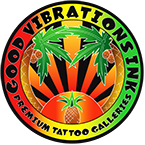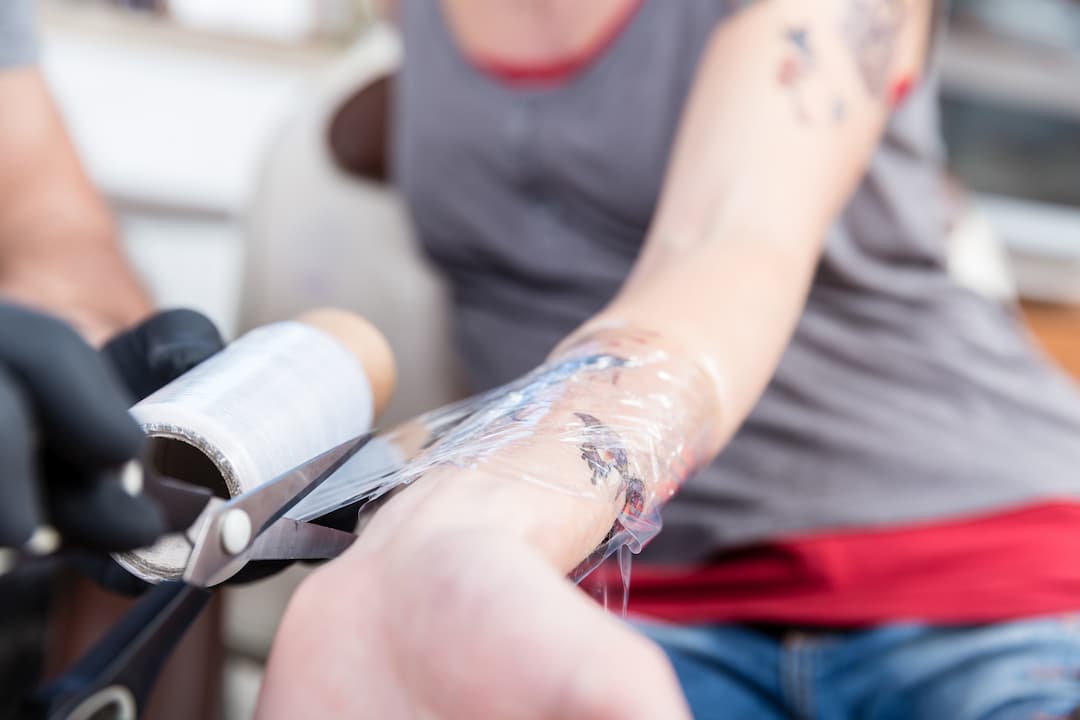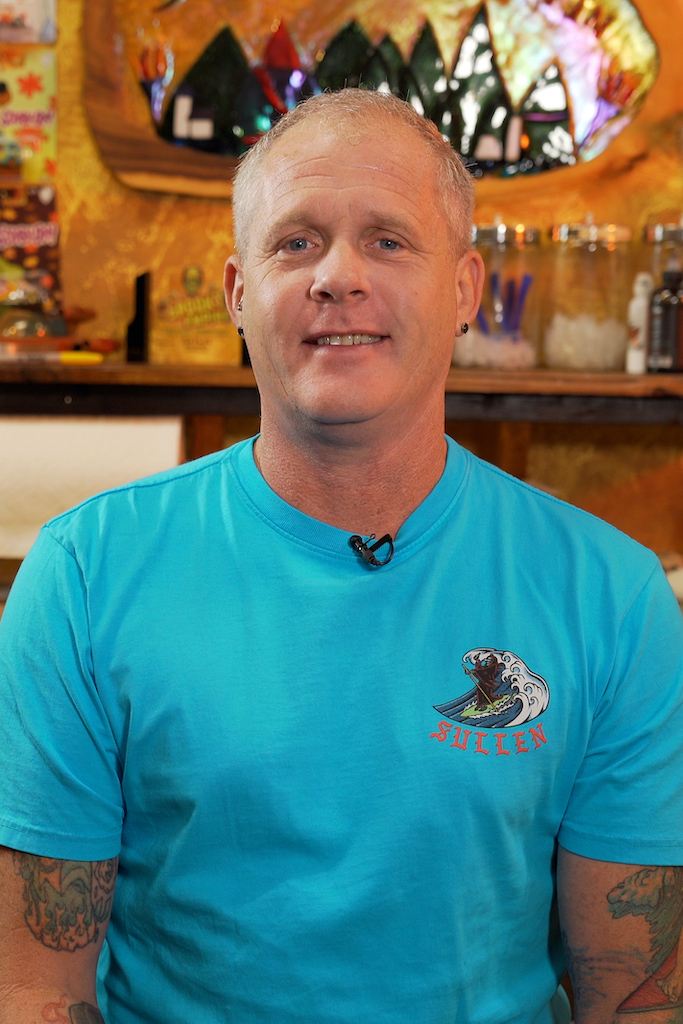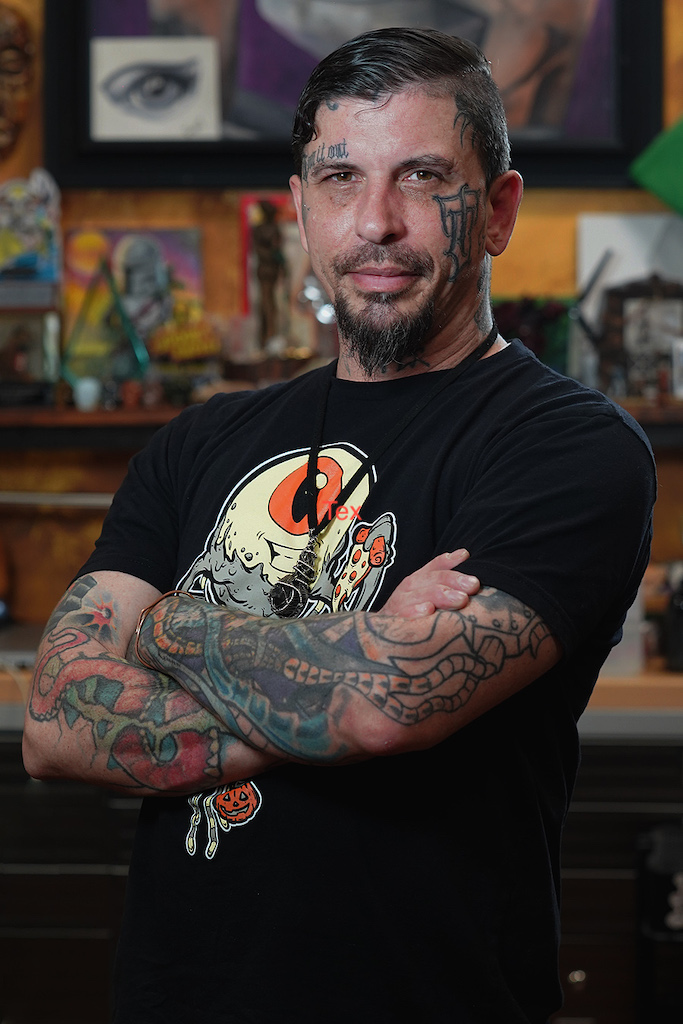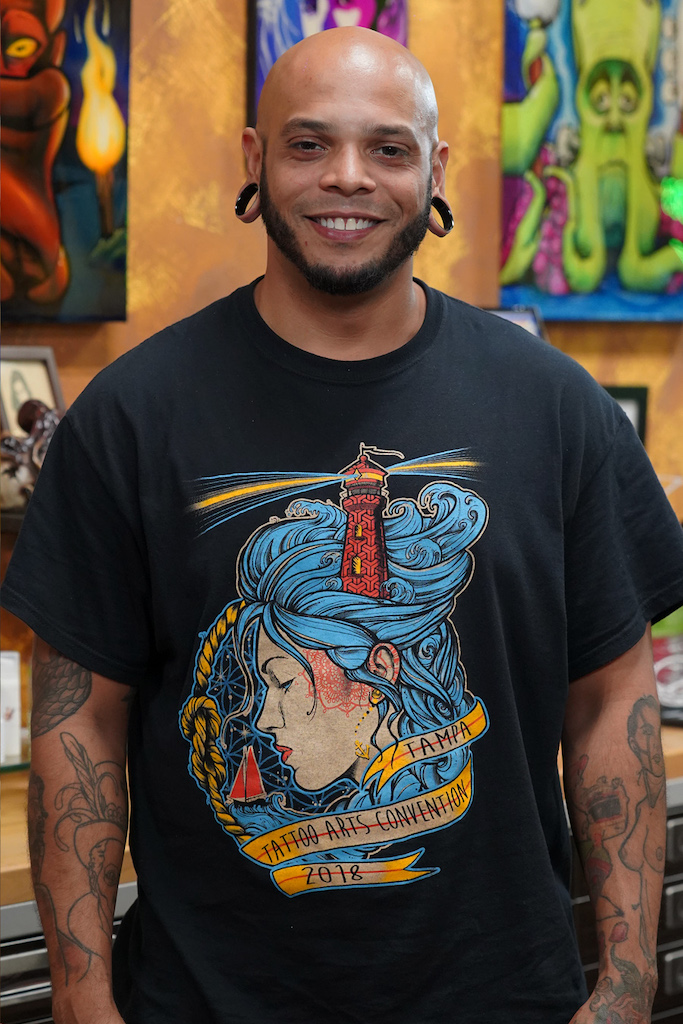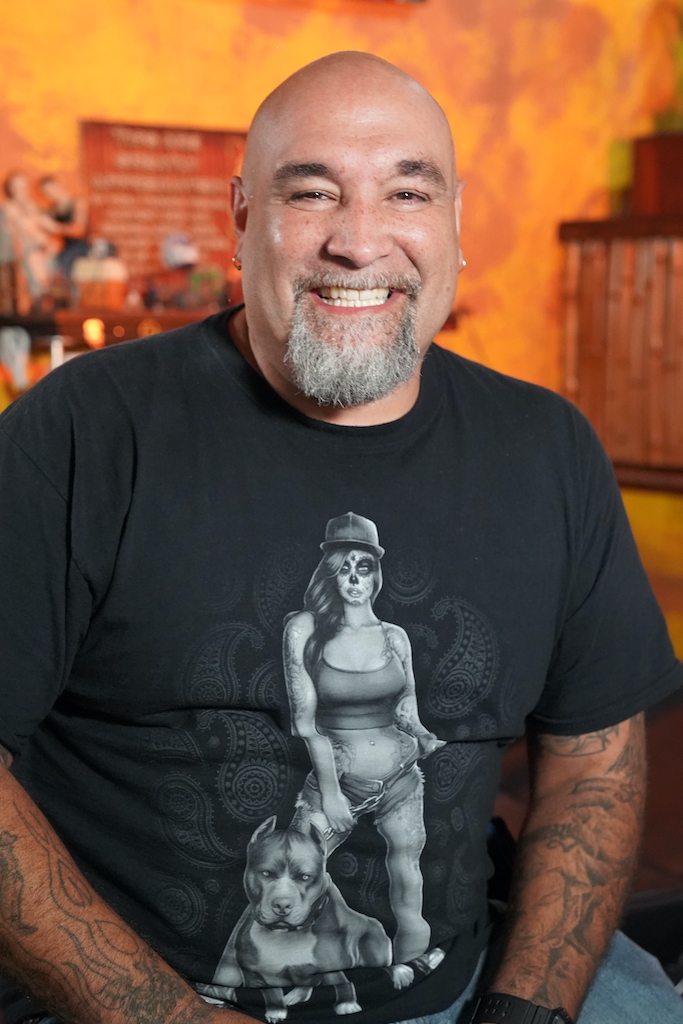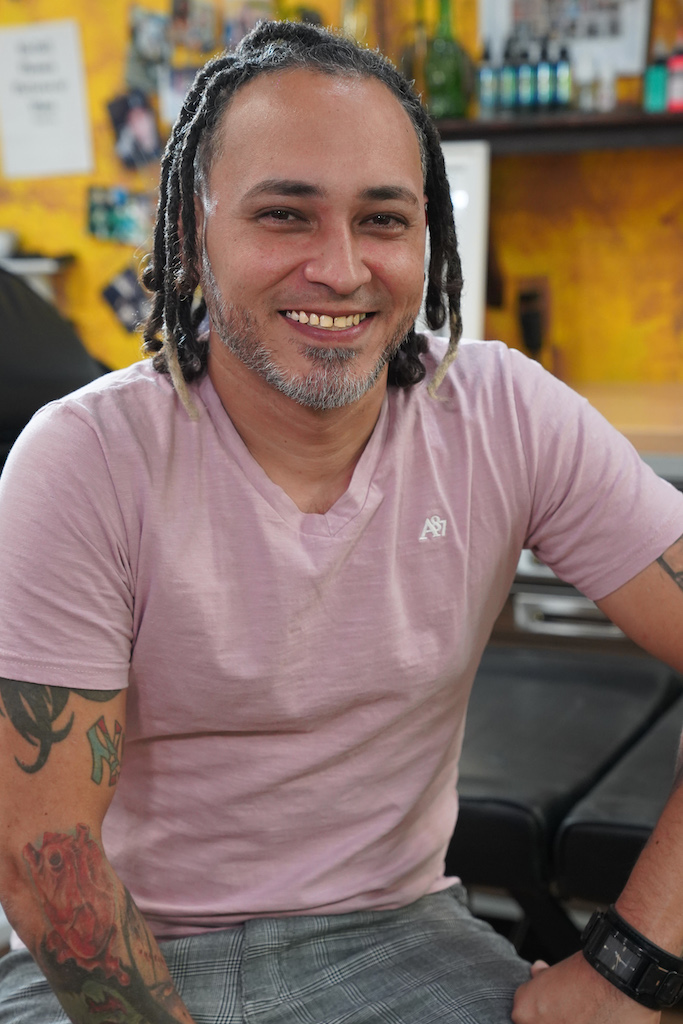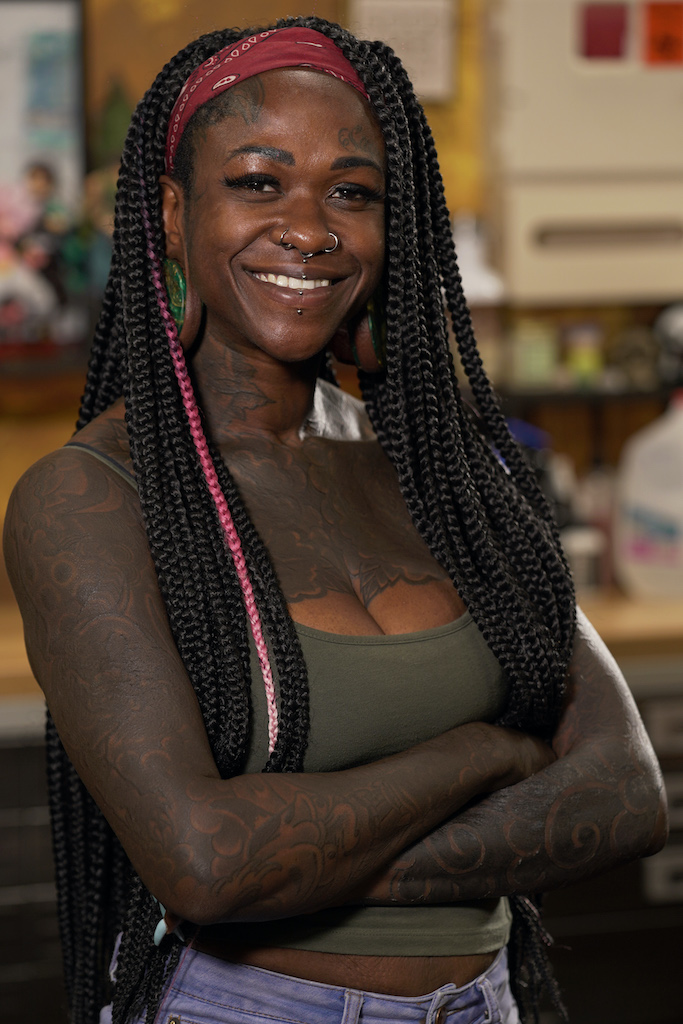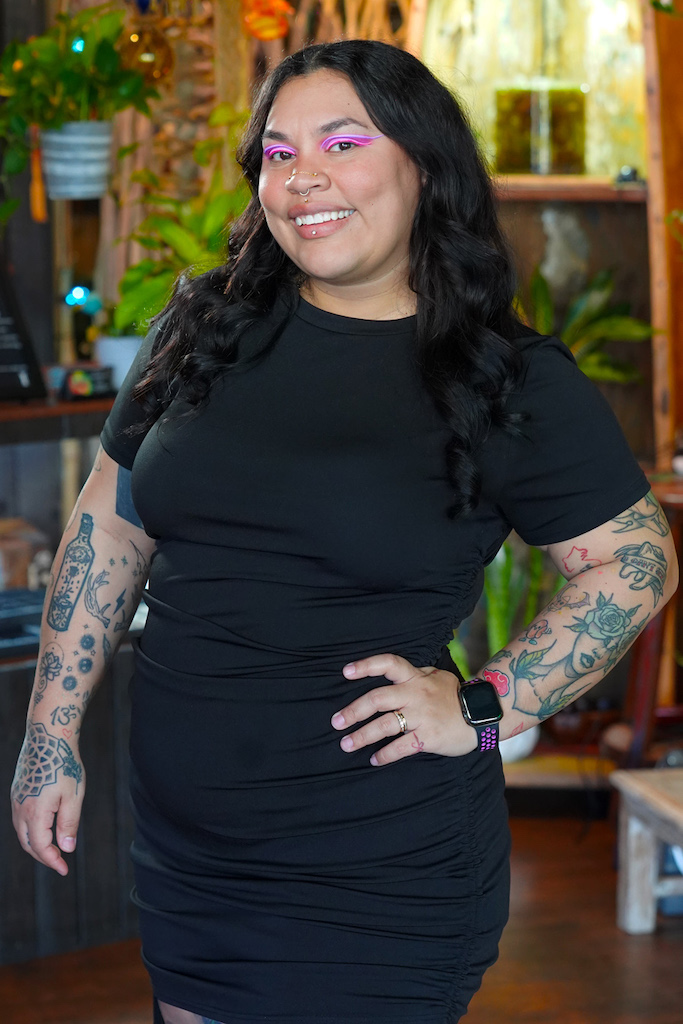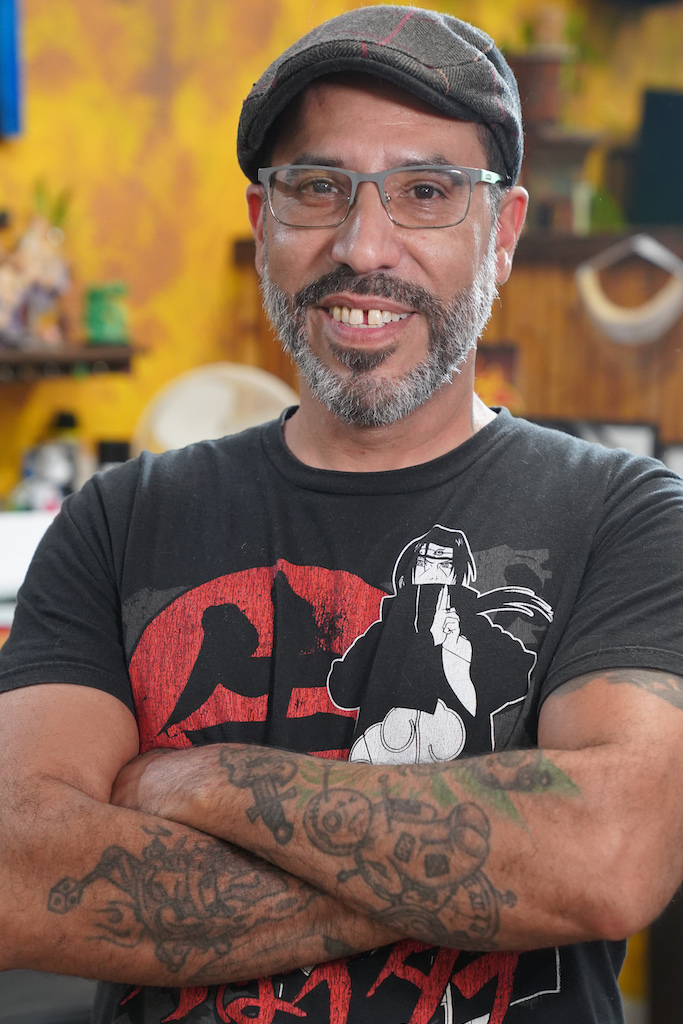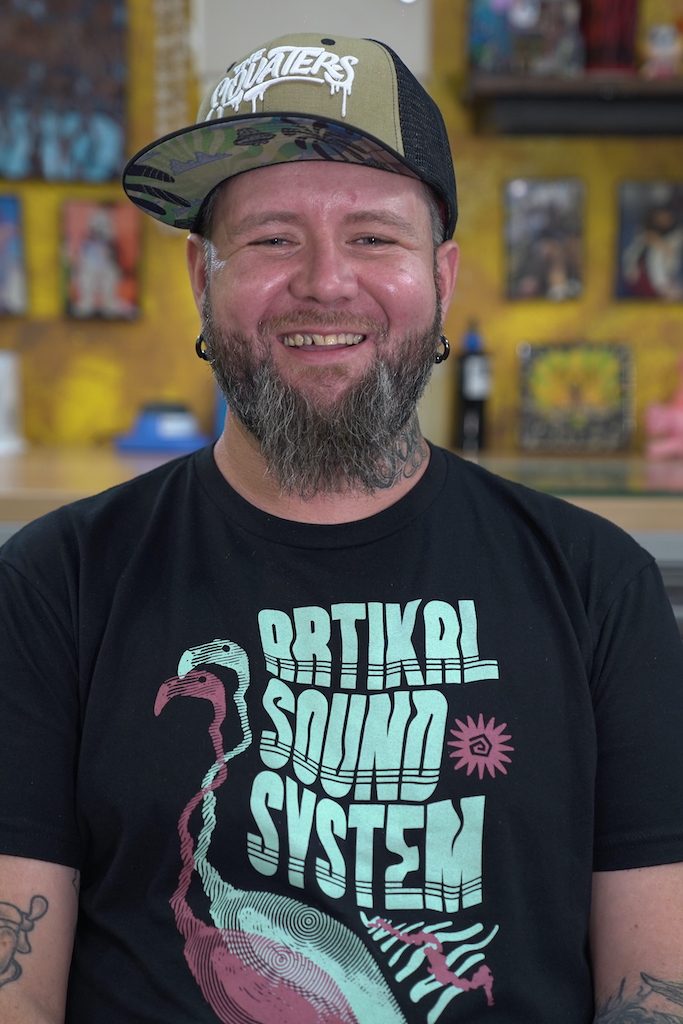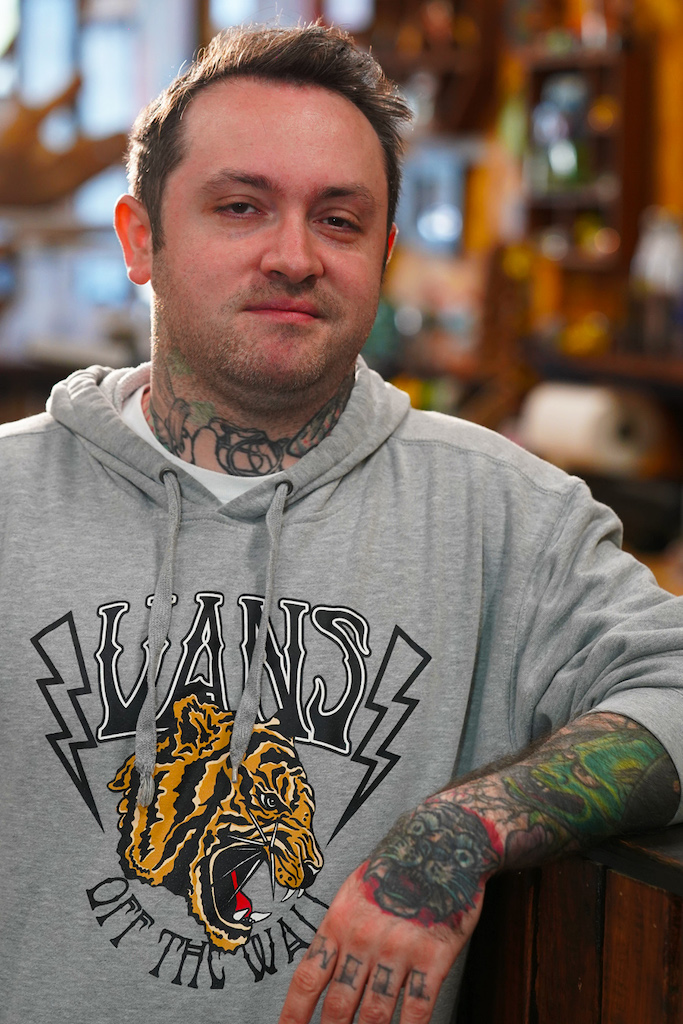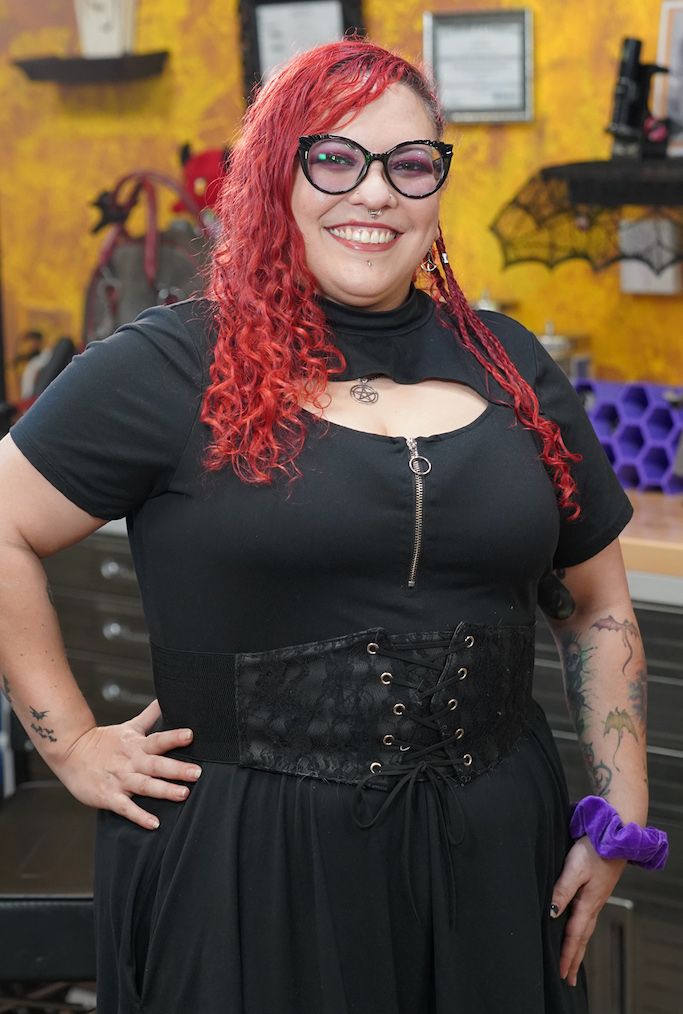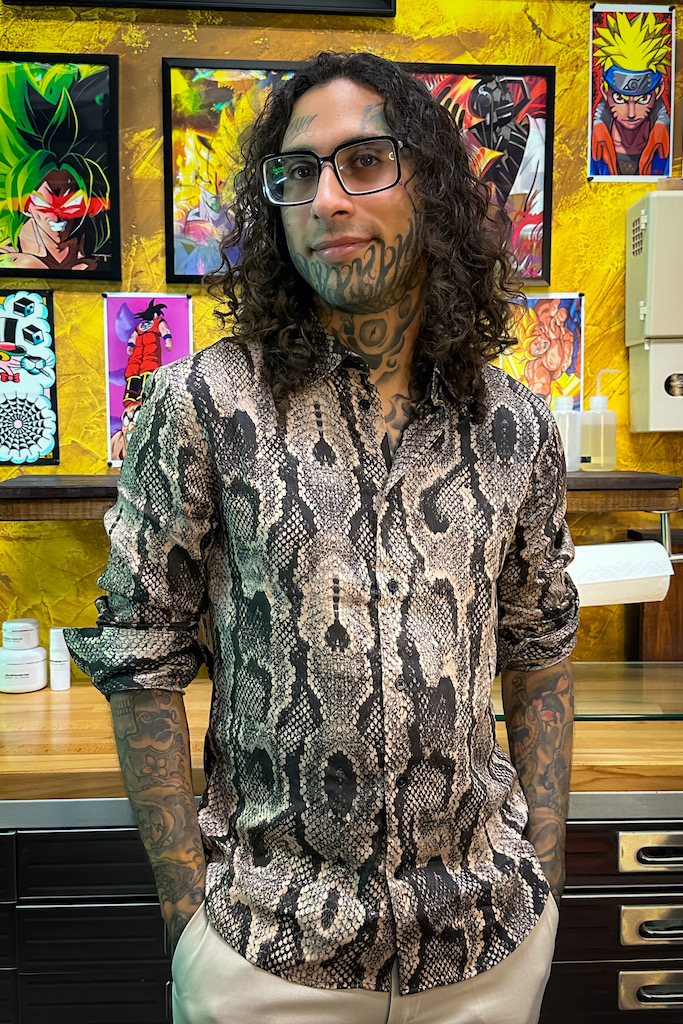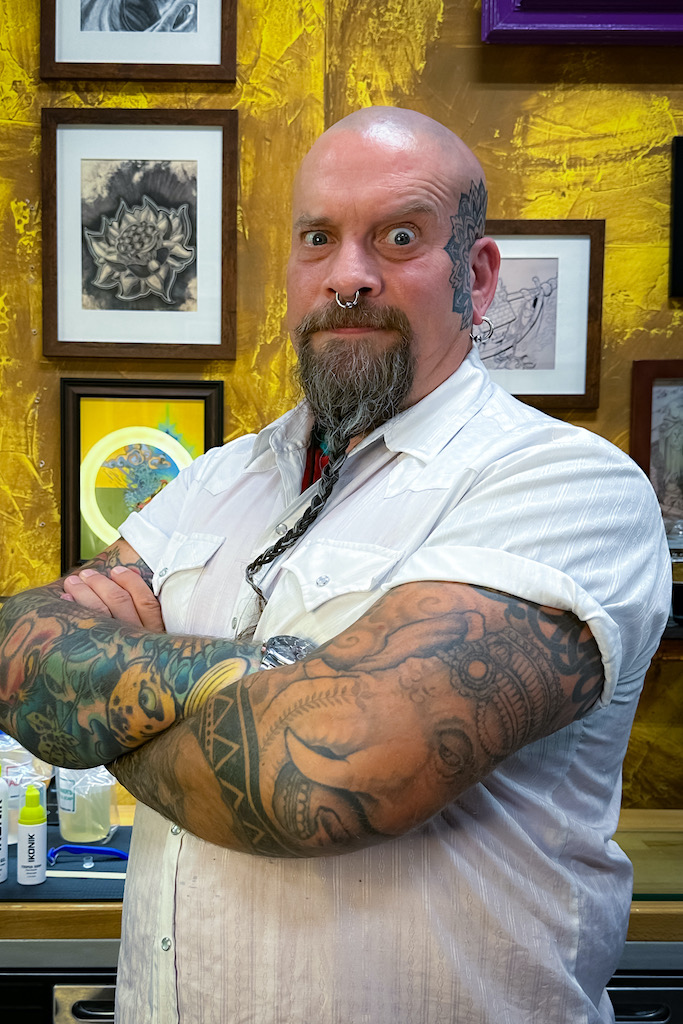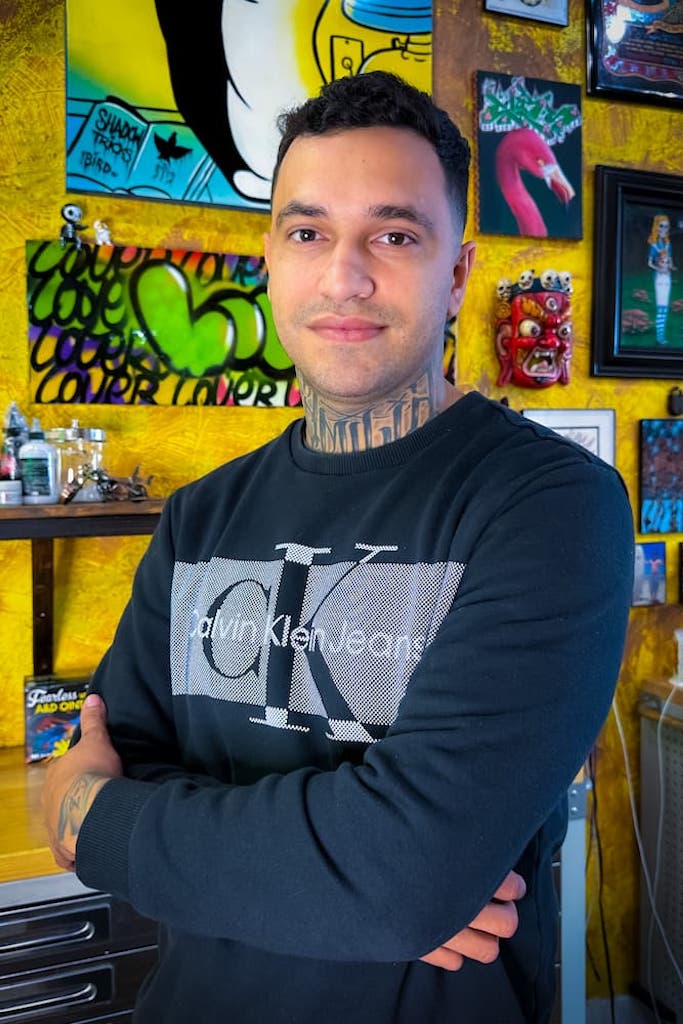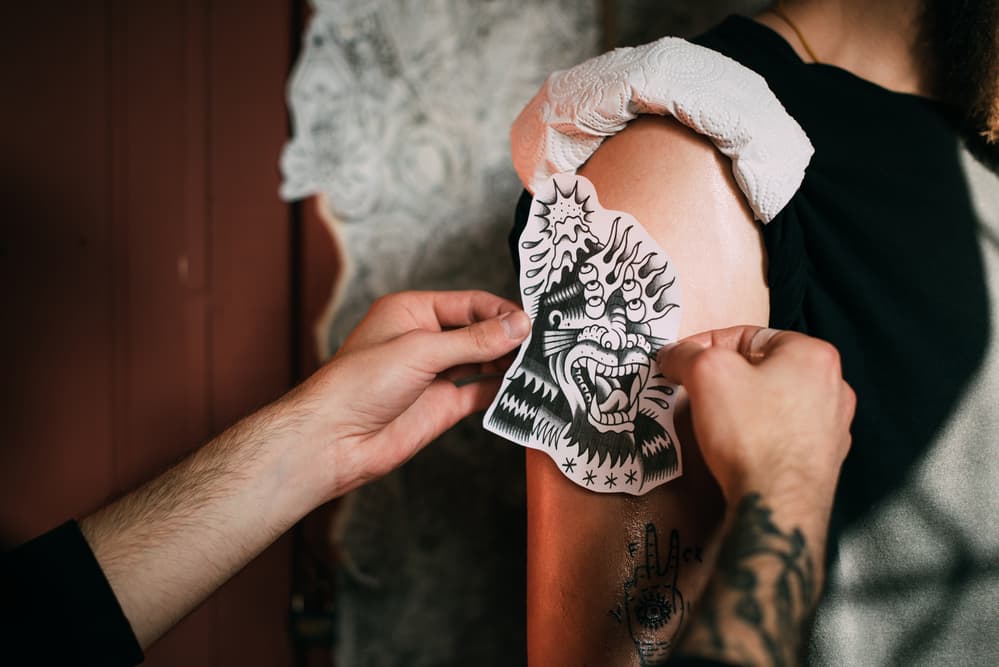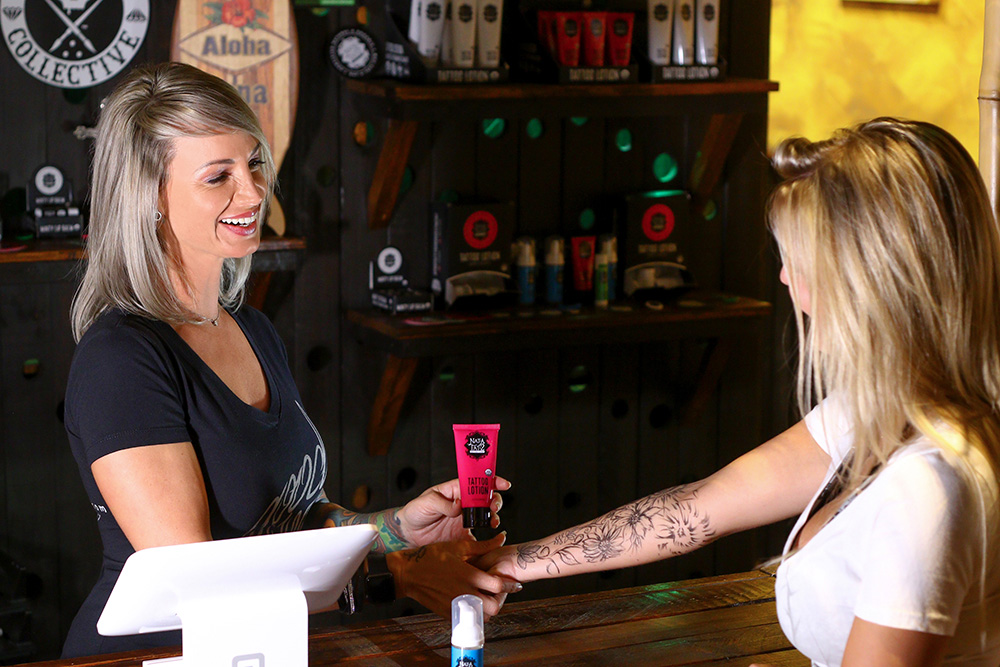At Good Vibrations Ink, we understand that getting the best tattoo results is a top priority for both clients and tattoo artists alike.
Whether you’re a first-time tattoo enthusiast or a seasoned ink veteran, this guide will provide insights and tips to ensure your tattoo experience is enjoyable and results in a tattoo you’ll cherish forever.
We’ll cover the essential steps to achieve the best tattoo results, address common questions, and share expert advice to help you make informed decisions before, during, and after your tattoo appointment.
Preparing for Your Tattoo
Before diving into the tattooing process, lay the foundation for success.
The first step in achieving the best tattoo results is selecting the right tattoo artist for your vision.
Ask yourself: Does their style align with what you want? Do they have a strong portfolio of similar work? Are they experienced and reputable
Next, prepare your canvas (skin) by shielding it from sun or any skin irritations you may have. Stay away from any type of blood thinner, NSIDS, Ibuprofen, Advil, and any similar product. These increase the likelihood of your skin to bleed excessively during the tattoo session. The final preparation step, often overlooked, is maintaining adequate hydration and following a balanced diet to help the tattooing process and longevity of your ink.
Selecting the Right Tattoo Artist
Choosing a skilled and compatible artist is paramount to your satisfaction.
An artist’s portfolio is a window into their artistic soul. It showcases their style, expertise, and the range of their capabilities. When reviewing an artist’s portfolio, consider:
- Style Alignment: Does the artist’s style align with your vision? Tattoos can range from traditional to realistic, black and gray to vibrant colors. Ensure the artist’s style matches the tattoo you have in mind.
- Diversity: A versatile artist can handle various tattoo styles and designs. A diverse portfolio is a sign of an artist’s ability to adapt to different client preferences.
- Previous Work: Ask if they’ve worked on similar designs before. An artist with experience in your chosen design or style is more likely to deliver the best results.
Sun Exposure
Excessive sun exposure can damage your skin and increase the risk of sunburn. Sunburned skin is not an ideal canvas for tattooing, as it may cause discomfort and affect the final result.
Sunburned skin can significantly affect the final result of a tattoo in several ways:
- Pain and Discomfort: Sunburned skin is already sensitive and painful. Tattooing over sunburned areas can intensify this discomfort, making the tattooing process more painful and potentially unbearable for the client.
- Swelling and Inflammation: Sunburned skin tends to swell and become inflamed. Tattooing on swollen skin can lead to uneven lines, shading, and tattoo distortion. The artist may struggle to achieve precision in their work.
- Fading and Blurring: Sunburn can damage the top layers of the skin, causing it to peel and shed. This shedding can result in the loss of ink, leading to fading and blurred lines in the tattoo design.
- Increased Risk of Infection: Sunburned skin is more susceptible to infection. Tattooing over sunburned skin can introduce bacteria into the damaged tissue, increasing the risk of complications and infection during healing.
- Uneven Healing: Sunburn disrupts the skin’s natural healing process. Tattooed areas may heal unevenly, leading to patchy or inconsistent results. This can require touch-up sessions to correct the tattoo’s appearance.
- Longer Healing Time: Tattooed areas on sunburned skin may take longer to heal due to the skin’s compromised condition. Prolonged healing can lead to extended periods of discomfort and uncertainty about the final outcome.
Hydration is Key
We cannot stress enough about adequate hydration before (and after) your tattoo.
In the days leading up to your appointment, drink plenty of water. Well-hydrated skin is healthier and more supple, making it easier for the tattoo artist to work on. Hydration contributes to a smoother and more comfortable tattooing process.
Steer clear of excessive alcohol for at least 24 hours before your tattoo session.
These substances can thin your blood, increasing the risk of bleeding during tattooing. Thinner blood may result in less precise tattoo lines and shading. By abstaining from alcohol and caffeine, you ensure a smoother and safer experience.
Balanced Nutrition
Prioritize a balanced meal at least 1 hour before your tattoo appointment to maintain stable blood sugar levels.
This step can prevent fainting, lightheadedness, or a drop in energy during tattooing. Opt for a meal with protein, complex carbohydrates, and healthy fats.
These nutrients provide a sustained energy source and help you stay comfortable and focused throughout your session.
By focusing on optimal nutrition and hydration, you can enhance your tattooing experience, reduce the risk of complications, and ultimately contribute to creating a stunning and long-lasting tattoo.
During Your Tattoo Session
Once you’re prepared and ready for your tattoo appointment, optimizing your session becomes essential.
Effective communication is the key to a successful tattoo experience. If you’re concerned about pain, consider using IKONIK’s Tonik Cream to numb your skin and provide relief during the session.
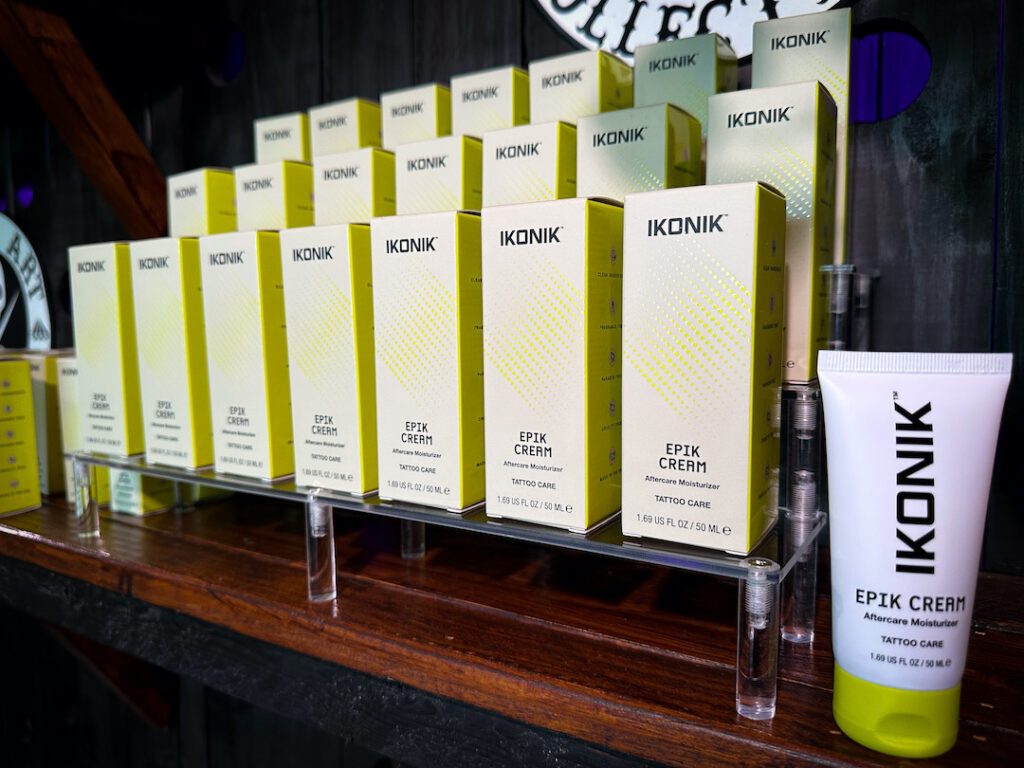
Consider prepping your skin prior to your tattoo with IKONIK’s Tonik Cream then follow up with IKONIK’s Stoik Spray during the tattoo session. Apply the cream 60-90 minutes prior to your tattoo, then wrap it in plastic wrap. If the pain continues, speak with your artist to apply the IKONIK Stoik Spray which takes only minutes to begin working. Once your skin becomes numb again, your artist can continue.
Additionally, explore various relaxation techniques and discuss your pain tolerance with your artist to tailor the experience to your comfort. Relaxation techniques include breathing exercises and listening to music.
Beyond your comfort, safety remains paramount, and at Good Vibrations Ink. We set the gold standard for hygiene and safety with our rigorous sterilization and cleanliness protocols, ensuring every client’s peace of mind. Always prioritize your health when selecting a tattoo shop.
Communication
It’s absolutely crucial to consult with your tattoo artist prior to getting inked. Open and effective communication with your chosen artist is fundamental. You should feel comfortable discussing your design, expectations, and any concerns. Here’s what to consider:
- Design Discussion: Have a detailed conversation about your design. Share your ideas, reference images, and any personal significance the tattoo may hold. A good artist will listen and work with you to bring your vision to life.
- Expectations: Communicate your expectations regarding the tattoo’s size, placement, and style. The more information your artist has, the better they can fulfill your wishes.
- Timeline: Inquire about the estimated timeline for your tattoo, including the number of sessions required, if applicable.
- Artistic Liberty: Be sure to allow your artist some creative freedom. They possess valuable insights into the tattooing process and how your tattoo will age over time.
Don’t be shy about asking questions. It’s encouraged. Ask about the tattooing process, pain management techniques, and aftercare instructions. All artists at Good Vibrations Ink will provide thorough answers and guidance.
Before you plunge into the tattoo session, we urge you to take a moment to ensure your safety and peace of mind. Don’t hesitate to ask your artist to show you all of the sterilized needles they’ll be using for your tattoo. This simple step can provide you with the assurance that your tattoo experience will be not only artistic and beautiful but also safe and hygienic.
Cleanliness and Sterility
Tattooing is not just about artistic skill. It’s also about maintaining a safe and sterile environment. A clean studio is essential to minimize the risk of infection.
At Good Vibrations Ink, our tattoo artists hold certifications in Blood-Borne Pathogen and Aseptic Technique practices. We are fully licensed by both the state of Florida and the Orange County Health Department, ensuring the highest standards of safety and professionalism at our galleries.
Good Vibrations Ink uses pre-sterilized, disposable, single-use only needles. Needles are never re-used. Good Vibrations Ink has a license for bio-medical waste for proper disposal of needles.
When evaluating a tattoo studio, consider:
- Sterilization: Ensure all equipment is properly sterilized, and single-use items are discarded after each session. The artist should use disposable needles and tubes or thoroughly autoclave sterilized equipment.
- Hygiene Practices: Observe the artist’s hygiene practices, such as wearing gloves, using fresh ink caps, and cleaning and sterilizing the work area thoroughly before and after each tattoo.
- Health Inspection: Check if the studio undergoes regular health inspections and complies with local regulations. Good Vibrations Ink takes pride in maintaining a clean and safe environment to protect our clients.
- Artist Licensing: Every artist at Good Vibrations Ink, and the galleries themselves, maintain their individual tattoo licensing. The businesses themselves should also carry licensing for tattoos.
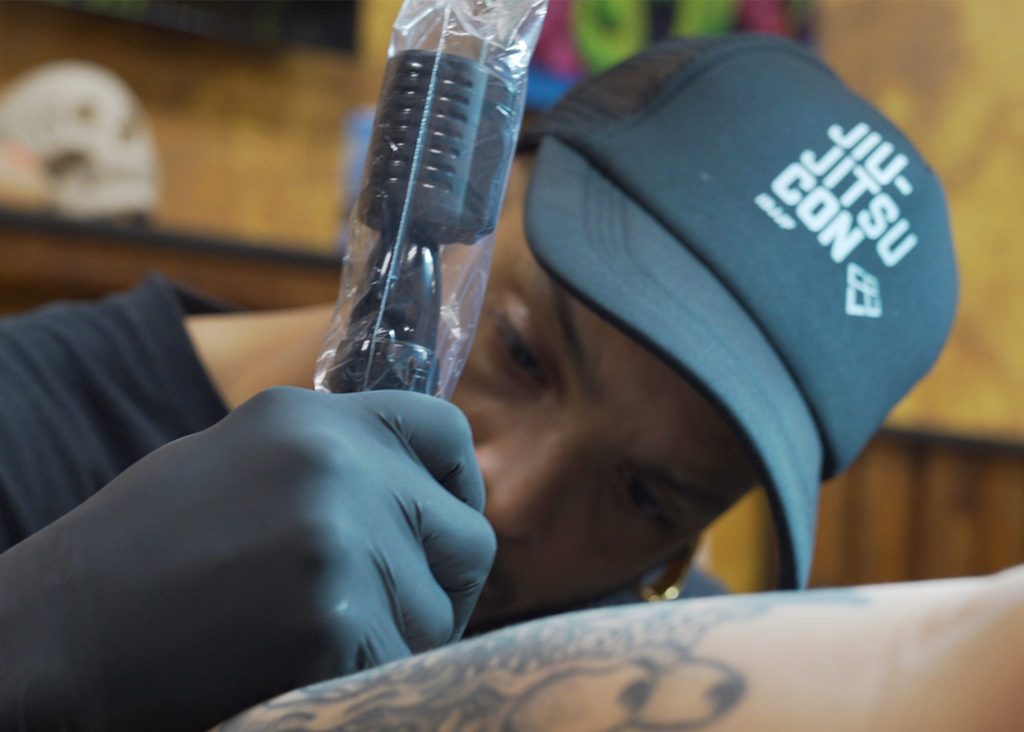
Caring for Your Tattoo: Follow Aftercare Instructions
After your tattoo session, the healing process plays a critical role in the final outcome.
Please adhere closely to your artist’s aftercare instructions once your tattoo is complete.
Your tattoo aftercare routine should begin immediately after the tattooing process is complete. We recommend starting aftercare promptly to reduce the risk of scarring or infection. Scarring typically occurs if you pick at your scabs after the session.
During the initial days post-tattoo, you may experience redness, itching, tenderness, and the presence of excess ink, along with blood and fluid seeping from the skin. These reactions are normal during this phase.
If you have any concerns during the healing process, don’t hesitate to contact your tattoo artist or the tattoo shop for further guidance and advice.
Products to Use
Keep your tattoo care routine simple but consistent. While we recommend using IKONIK’s aftercare products, the aftercare product you choose should be applied as your artist directs you.
Good Vibrations Ink recommends cleaning your skin with IKONIK Cosmik Soap while in the shower at least once per day or after heavy sweating. Allow your tattoo to air dry for at least 10 minutes before applying IKONIK’s Epik Cream. Apply a thin layer to the tattooed area approximately 2 – 4 times daily. This allows your tattoo to breathe while maintaining proper moisture.
Tattoos aren’t cheap. Protecting your investment with products catered to the tattoo healing process and longevity is important. Many products available at drug stores are not meant for tattoos specifically. These products can force the ink deeper into the healing layers of your skin and disrupt your body’s natural healing process.
Using products developed for tattoos will allow your ink to maintain its vibrancy from day one.
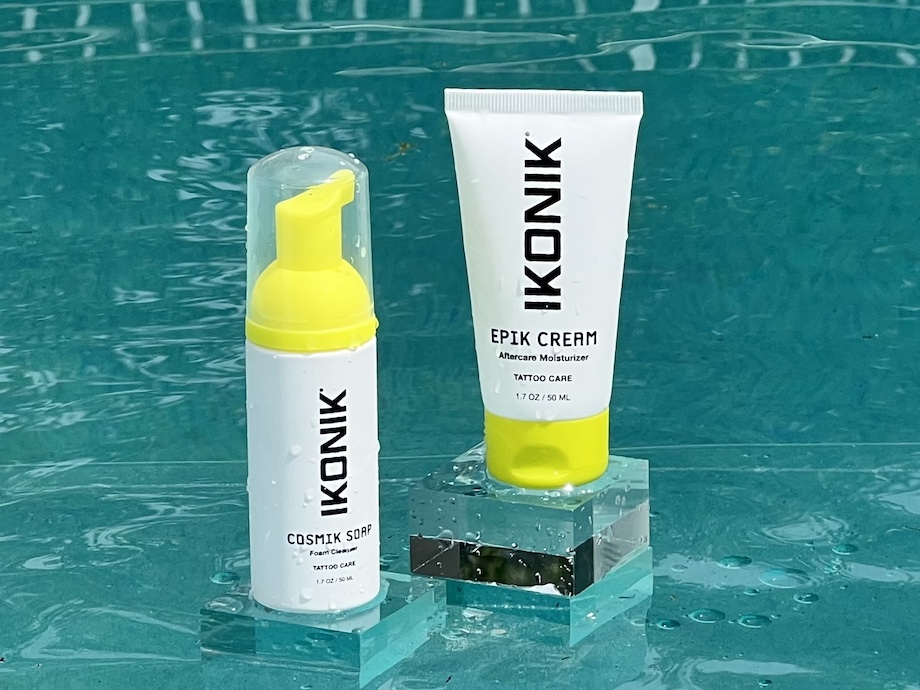
Products to Avoid
Certain products should be avoided during tattoo aftercare to ensure the best healing and preservation.
These include blood thinners like ibuprofen, ointments, and petroleum-based products like Vaseline, and Aquaphor. Avoid ointments during the healing process, as they can potentially harbor bacteria, increasing the risk of infection and scabbing.
While Aquaphor is a protective skin ointment, it contains ingredients that can impact tattoo appearance and longevity. Neosporin, commonly known for its healing properties, can cause allergic reactions if used excessively. We highly recommend that you do NOT apply these to your new ink.
Activities to Avoid
It’s best to resist the temptation to fiddle with your fresh tattoo, as excessive touching, picking, or scratching can affect the ink and even lead to potential scarring and infections.
You should avoid pools, oceans, baths, hot tubs, lakes, etc. Showers are welcome, but long exposure to water can impact how your tattoo heals and looks.
Remember, a clean and healthy lifestyle can aid in proper healing, so try to cut back on substances like drugs, cigarettes, and excessive alcohol. Avoid consuming alcohol in large quantities during the healing period, as it can cause overall inflammation, potentially interfering with the healing process.
Also, consider giving your tattoo some shade. Direct sunlight can cause the ink to fade prematurely. We recommend holding off on shaving over your tattoo until it’s fully healed to avoid irritation. Loose-fitting clothes are your tattoo’s best friend during the healing process, so give it some space to breathe.
Lastly, once that initial bandage comes off, it’s best to let your tattoo heal naturally, using recommended aftercare and avoid re-bandaging it. Your tattoo needs room to breathe and mend on its own terms!
At Good Vibrations Ink, the majority of our artists use SecondSkin bandaging after your tattoo is complete to help the healing process. You can learn more about SecondSkin here.
Good Vibrations Ink has a dedicated aftercare page and downloadable pdf for detailed recommendations on proper aftercare.
How to Shield Your Tattoo from Fading
Your tattoo is a work of art, and like any masterpiece, it requires care and protection to maintain its vibrancy over time. Here’s how you can safeguard your tattoo from fading:
Sun Protection
One of the most significant threats to tattoo longevity is sun exposure. The sun’s UV rays can gradually break down the pigments in your tattoo, causing it to fade and lose its brilliance.
A July 2020 study by the National Library of Medicine examined the impact of sunscreen on tattoo longevity. The study found that using sunscreen, specifically SPF 50+ cream, on existing tattoos exposed to sunlight for 28 days helped maintain tattoo appearance, preserved the skin barrier, and kept tattooed skin hydrated, supporting current recommendations for effective tattoo aftercare.
Choose a sunscreen with at least SPF 30 and ensure it protects against UVA and UVB rays. Reapply sunscreen regularly, especially if you spend an extended period in the sun.
Additionally, consider wearing clothing that covers your tattoo if you’ll be exposed to direct sunlight for an extended period.
Chlorinated Pool and Salty Ocean Water: Skin Irritation and Tattoo Impact
Both chlorinated pool water and salty ocean water can be problematic when healing a tattoo. These two elements share a common theme of skin irritation and potential complications for tattooing and its aftermath.
In the case of chlorinated pool water, its powerful sanitizing properties can irritate the skin significantly. High chlorine concentrations can strip away the skin’s natural oils and moisture, leaving it dry and more susceptible to harm.
The negative effects of chlorine can persist into the healing phase, where residual chlorine in the skin can cause prolonged irritation and delayed recovery. This may also interfere with the proper absorption of tattoo aftercare products, potentially compromising the tattoo’s vibrancy and longevity.
Chlorine can pull ink from your skin during the healing process, causing it to look faded, blotchy, and ultimately lose it’s overall quality.
Similarly, despite its reputation for being soothing and refreshing, salty ocean water can have adverse consequences on the skin when considering a tattoo.
Like chlorine, saltwater can strip away the skin’s natural oils, resulting in dryness and heightened susceptibility to irritation. Saltwater’s influence extends into the healing phase, potentially causing prolonged discomfort and slower recovery.
The lingering saltwater residue within the skin can obstruct the absorption of essential tattoo aftercare products, impacting the tattoo’s overall appearance and durability.
Moisturization
Keep your tattooed skin well-moisturized with a high-quality tattoo-specific aftercare lotion. For optimal tattoo aftercare, we recommend using IKONIK’s Epik Cream.
Properly hydrated skin retains ink better and appears more vibrant.
Applying this cream immediately after your tattoo session is completed can work wonders. It contains restorative ingredients that effectively reduce inflammation, soothe irritation, and lock in essential moisture, facilitating healing.
Apply the moisturizer regularly, as dry skin can lead to color fading. Hydrated skin helps maintain the integrity of the tattoo’s pigments and ensures a longer-lasting, vivid result.
Avoid Exfoliation
Avoid exfoliating your new tattoo. This can cause the skin to shed faster, taking ink with it.
To prevent this, be gentle when washing the tattoo with IKONIK’s Cosmik Soap. Avoid using harsh scrubs or abrasive cleaning tools on the tattooed skin. Pat the area dry rather than rubbing it vigorously. Treating your tattoo with care during daily routines helps preserve its color and detail.
By taking these precautions, you can protect your tattoo from fading and enjoy its brilliance for years. Remember that proper aftercare and ongoing attention to sun protection are key factors in maintaining the vividness and longevity of your inked artwork.
